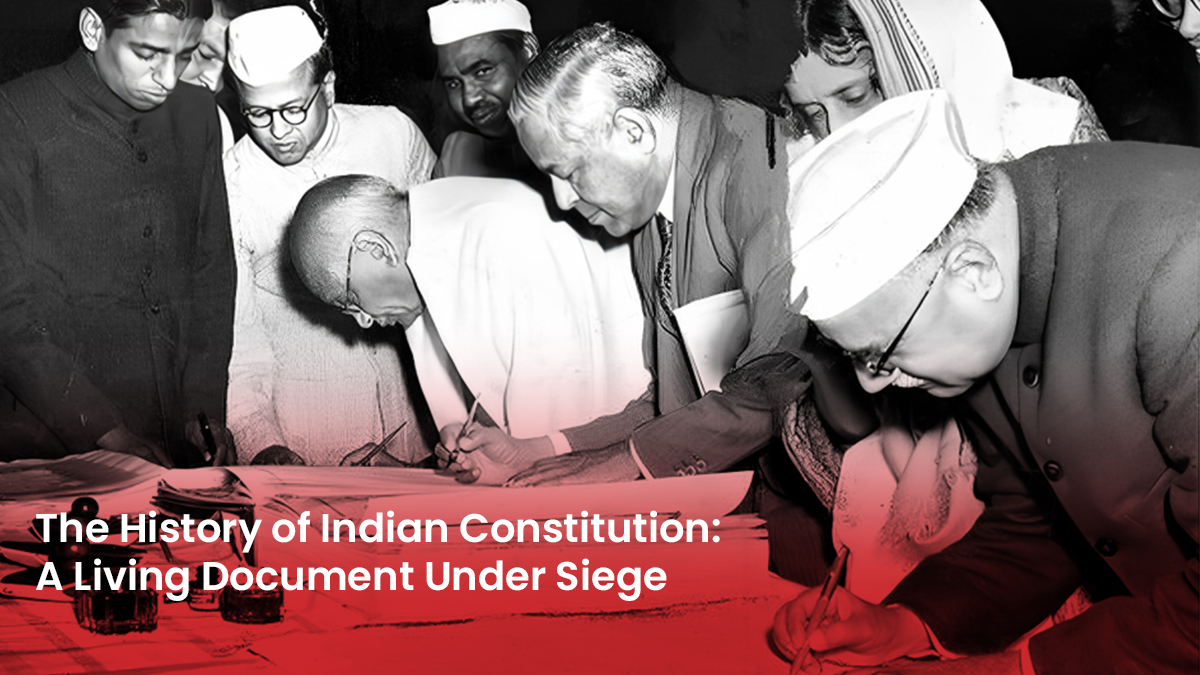Think about two neighbors fighting over a small piece of land. Both say it is theirs, but who is right? A lawyer helps solve such problems using laws. Lawyers play an important role in society by fighting for justice and protecting people’s rights.
Many students want to study law because it gives a good career and helps people. To become a lawyer, you need knowledge and skills to handle different cases. Law courses teach how to argue in court, understand rules, and give legal advice.
If you dream of becoming a lawyer, this blog will help you learn about the course, LLB full form, and its importance.
What is meant by an LLB
LLB is a law degree that helps a student become a lawyer. It teaches about rules, rights, and justice. If a person has any legal problem, a lawyer can help with these laws.
This course involves various subjects such as criminal law, family law, and business law. It teaches students how to argue in court, give legal advice, and help people solve disputes.
This LLB degree can be chosen for students who intend to work in courts, companies, or offices of the government. After doing this degree, they can work as lawyers, judges, or legal advisors. Many students select LLB in order to develop a strong and respected career.
What is the full form of LLB
LLB full form is Legum Baccalaureus. It is the Latin term of LLB, which generally means Bachelor of Legislative Law or Bachelor of Laws. LLB is the great option for students who like to make a career in law.
This teaches legal rules, court procedures, and how to fight cases. LLB encompasses criminal law, civil law, and human rights. Many students choose to do LLB to eventually become lawyers, judges, or legal advisors.
In India, a student can do a 3-year LLB after graduation or a 5-year integrated LLB after Class 12. If one is interested in justice and legal rights, an LLB degree is a good choice.
Different types of LLB courses for law aspirants
LLB courses come in different formats to suit students with various educational backgrounds. Whether you have completed Class 12 or already have a degree, there is an option for you. These courses provide legal knowledge and help students build a career in law. Below are the main types of LLB courses available for aspiring lawyers.
Three-year LLB course
The three-year LLB course is for students who have already completed graduation in any stream. It is one of the most common ways to enter the legal field. This course focuses on law subjects and courtroom practices to prepare students for legal careers.
Key features of a three-year LLB
- Requires a bachelor’s degree for admission
- Covers constitutional law, criminal law, and contract law
- Ideal for students who decide on law after completing graduation
- Offers practical training like moot courts and internships
Five-year integrated LLB course
This is a combination of a bachelor’s degree and a Bachelor of Laws (LLB ka full form). It is designed for students who want to start their legal education immediately after Class 12. The course saves one year compared to doing a separate degree and then an LLB.
Types of five-year integrated LLB
- BA LLB: The BA LLB full form is Bachelor of Arts and Bachelor of Laws. This course includes humanities subjects like political science, sociology, and history along with law. It is ideal for students interested in legal theory and public administration.
- BBA LLB: The BBA LLB full form is Bachelor of Business Administration and Bachelor of Laws. It combines business and law subjects, making it a good choice for students who want to work in corporate law, taxation, or business regulations.
- BCom LLB: The BCom LLB full form is Bachelor of Commerce and Bachelor of Laws. This course is best for students with a commerce background, as it covers business law, taxation, and accounting, preparing them for roles in corporate and financial law.
- BSc LLB: The BSc LLB full form is Bachelor of Science and Bachelor of Laws. This course is designed for students with a science background and includes subjects like environmental law, forensic science, and intellectual property law.
LLM after LLB
LLM (Master of Laws) is an advanced law degree for students who want to specialize in a particular legal field. It is not mandatory but helps in careers like corporate law, international law, and academia.
A complete overview of the LLB course
The LLB full form in law is a Bachelor of Laws, a professional degree that provides in-depth legal knowledge and prepares students for careers in the legal field. It covers subjects like constitutional law, criminal law, and corporate law. Completing an LLB course and knowing the complete details of the LLB course full form allows students to pursue roles as advocates, legal advisors, or corporate consultants. Let’s explore its course details, eligibility, entrance exams, and career prospects.
Course details of LLB
The LLB degree full form is stated as a Bachelor of Laws, designed to provide legal education to aspiring lawyers. It is available in two formats:
- Three-year LLB: For graduates from any discipline
- Five-year integrated LLB: For students who have completed Class 12
The syllabus includes legal theory, contract law, property law, and environmental law. Students also gain practical experience through moot courts, internships, and legal research.
Eligibility criteria for LLB
To pursue an LLB, understanding LLB full form in law and the overall course details are important. However, students must meet the following criteria to get the LLB degree:
- For a three-year LLB, besides knowing the LLB course full form, a bachelor’s degree is required
- For a five-year LLB, candidates must have completed Class 12 with at least 45-50% marks (varies by university)
- Some universities have an age limit and conduct entrance exams for admission
Top law entrance exams
Besides understanding the complete details about an LLB degree full form, admission to an LLB degree program requires clearing entrance exams such as:
- CLAT (Common Law Admission Test) – For National Law Universities (NLUs)
- AILET (All India Law Entrance Test) – For NLU Delhi
- LSAT India (Law School Admission Test) – Accepted by private law colleges
- MH CET Law – For law colleges in Maharashtra
- Each exam tests legal reasoning, aptitude, and general knowledge
Career opportunities after LLB
A degree in LLB and the complete details about LLB degree full form in law opens diverse career opportunities, including:
- Litigation: Work as an advocate in courts
- Corporate law: Become a legal consultant for companies
- Judiciary: Appear for judicial service exams to become a judge
- Government sector: Work as a public prosecutor or legal officer
- Higher studies: Pursue LLM for specialization in fields like international law or criminal law
Pursuing an LLB course after gaining complete knowledge of the LLB course full form equips students with the skills needed to excel in the legal profession, whether in advocacy, corporate law, or policymaking.
LLB subjects and admission process
The LLB course full form is stated as Bachelor of Laws, a professional law degree that equips students with legal knowledge and practical skills. Understanding the subjects covered in this course and the admission process is essential for aspiring law students. The curriculum includes various legal topics, and getting into an LLB program requires clearing specific entrance exams and meeting eligibility criteria. Below is an overview of both aspects.
LLB course subjects and detailed curriculum
The LLB degree full form is abbreviated as Bachelor of Laws, and its subjects are designed to provide students with a strong foundation in law. The curriculum is divided into core subjects, optional subjects, and practical training components.
Core subjects
These subjects form the backbone of legal education and are common across all LLB programs.
- Constitutional Law
- Criminal Law
- Contract Law
- Family Law
- Company Law
- Property Law
- Environmental Law
- Human Rights and International Law
Specialized and optional subjects
Depending on the institution, students can choose specialized subjects to align with their career interests.
- Intellectual Property Law
- Cyber Law
- Taxation Law
- Corporate Governance
- Media and Entertainment Law
Practical training and internships
Apart from theoretical learning, the curriculum includes:
- Moot court practice
- Legal writing and drafting
- Internships with law firms and advocates
- Court visits and case analysis
Understanding the admission process for LLB
Getting into an LLB course full form (Bachelor of Laws) program requires candidates to follow a structured admission process. The steps may vary depending on the university, but the general process is outlined below.
1. Research and choose the right college
Before applying, candidates must explore various universities and law schools that offer LLB full form in law courses. Factors like faculty, infrastructure, placement opportunities, and course curriculum should be considered.
2. Application submission
Once a candidate selects a college, they must fill out the application form, which is available on the university’s official website. Some institutions conduct direct admissions, while others require an entrance test.
3. Entrance exam or merit-based selection
Most of the universities are admitting students through national or state-level law entrance exam scores. Some private colleges also grant admission on merit, considering their earlier qualifying examination scores.
4. Counseling and document verification
Candidates shortlisted will be called for counseling and should present the documents required:
- Academic certificates
- Identity proof
- Scorecard of the entrance exam if any
5. Payment of fees and final admission
It is after successful verification that candidates have to pay the admission fee to confirm their seat in the course of LLB degree full form. A few universities also stage orientation programs for new students.
Conclusion
Earning a law degree is a major step toward a career in the legal field. The LLB degree, which some call a Bachelor of Laws, empowers students with vast knowledge of legal principles, judicial processes, and case laws.
It really builds a strong ground for all those aspiring to be lawyers, judges, or legal consultants. The understanding of LLB full form, Legum Baccalaureus, will help in identifying the role that the qualification plays in an individual’s professional legal career.
Proper dedication along with practical exposure will help a graduate LLB contribute to society in fulfilling justice, securing rights, and bringing positive differences in the whole legal system.

























